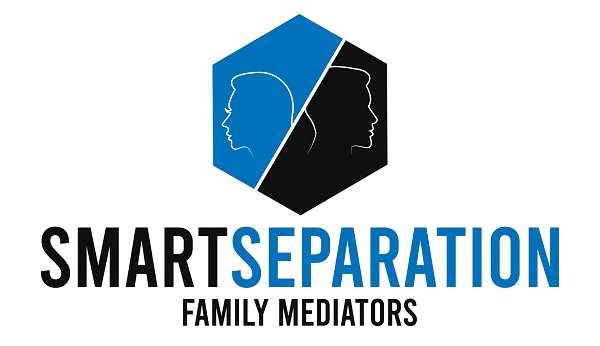What Does a Toronto Family Mediator Actually Do?
In Toronto, where family law disputes are increasingly being resolved out of court, mediators serve as a neutral presence helping both parties find common ground without taking sides.
- Acts as a Neutral Third Party
The mediator’s primary responsibility is to remain impartial. They do not make decisions for the couple or offer legal advice. - Facilitates Constructive Dialogue Between Spouses
Communication often breaks down during separation or divorce. A mediator helps restore dialogue by managing conflict and keeping discussions focused on practical solutions. - Ensures Each Party Has a Voice in the Process
Power imbalances can exist in relationships. A skilled Toronto family mediator is trained to recognize these dynamics and take steps to ensure that each party has an equal opportunity to participate meaningfully. This may involve setting ground rules or meeting individually with each party before joint sessions begin (known as “intake sessions”). - Guides Discussions Around Parenting Plans, Support, and Property
A major part of the mediator’s job is helping couples address all the necessary legal and financial matters that arise from separation. This includes:- Developing parenting plans that reflect the best interests of the children
- Calculating appropriate child and/or spousal support based on Ontario guidelines
- Negotiating the fair division of property, debts, and pensions under the Family Law Act
- Helps Draft a Memorandum of Understanding (MOU)
Once the couple reaches agreements, the mediator prepares a Memorandum of Understanding—a written summary of the decisions made during mediation. This MOU is not legally binding on its own but can be reviewed and turned into a binding separation agreement by each party’s lawyer. In some cases, mediators may work directly with collaborative lawyers to streamline this final step.
When Should You Consider Family Mediation in a Divorce?
Mediation isn’t suitable for every separating couple, but it is highly effective in many Toronto divorce cases. If both parties are willing to communicate and compromise, family mediation can provide a faster, less stressful, and more cost-effective way to resolve disputes compared to going to court.
- When Both Parties Are Open to Negotiation
Mediation relies on mutual participation. If both spouses are willing to listen, speak honestly, and consider each other’s perspectives, mediation can lead to productive outcomes. It’s particularly effective when both parties want a resolution that works for everyone involved. - For Low to Moderate-Conflict Divorces
Mediation works best when the level of conflict is manageable. While some disagreement is normal, couples dealing with extreme hostility or a history of abuse may not benefit from this process. In such cases, litigation or lawyer-led negotiation may be safer or more appropriate. - To Avoid the High Costs and Delays of Litigation
Court proceedings in Toronto can be expensive and time-consuming. Between filing fees, legal representation, and prolonged timelines, a traditional divorce can take months or even years to conclude. Mediation offers a streamlined alternative that typically costs less and resolves matters more quickly. - When Children Are Involved and Co-Parenting Is a Goal
For couples who share children, mediation supports the development of a child-focused parenting plan. It encourages respectful communication and co-parenting strategies that promote stability for children—an outcome that benefits the entire family long term. - Court May Require You to Attend a Mandatory Information Program (MIP)
In Ontario, many separating couples are required to attend a Mandatory Information Program before proceeding with a court application. This session provides details on alternatives to litigation, including mediation. In fact, Toronto family courts often recommend or refer suitable cases to on-site mediation services before allowing a case to advance.
Benefits of Using a Toronto Family Mediator Divorce Cases
- Faster Resolution
Unlike the court system, which is often delayed due to backlogs and strict scheduling, mediation moves at the pace set by the couple. Many families in Toronto resolve their key issues within a few sessions, rather than waiting months or years for a court date. - Lower Costs Than Hiring Lawyers and Going to Court
Court battles can become extremely expensive once legal fees, filing costs, and multiple court appearances add up. Mediation is generally more affordable—particularly when fees are shared—and helps couples keep their financial resources focused on the future rather than fighting in court. - More Control Over Outcomes
In court, a judge makes the final decisions, which may not align with either party’s wishes. In mediation, both spouses actively participate in shaping the agreement. - Less Stress and Emotional Burden
Divorce is already an emotionally draining process. Mediation creates a more supportive and respectful environment, reducing the adversarial tension often present in court proceedings. Many participants find it easier to express themselves and feel heard during mediation.
How the Family Mediation Process Works in Ontario
Understanding the step-by-step mediation process can help separating couples in Toronto feel more prepared and confident. While each case is unique, most family mediations in Ontario follow a similar structure designed to encourage open communication and reach mutually acceptable resolutions.
- Initial Consultation
The process usually begins with an initial consultation, often offered for free or at a reduced rate. This meeting allows both parties to learn about the mediator’s approach, clarify the scope of mediation, and determine if mediation is appropriate for their situation. It’s also a chance to ask questions about fees, timelines, and confidentiality. - Individual Intake Sessions
Before joint sessions begin, each spouse typically participates in a private intake meeting with the mediator. - Joint Mediation Sessions
Once both parties agree to move forward, joint mediation sessions begin. The number of sessions needed varies, but many couples can reach agreements within 3 to 5 meetings. - Development of Agreements
As decisions are made, the mediator records them and may assist in drafting a Memorandum of Understanding (MOU) or a Parenting Plan. These documents summarize the agreed-upon terms and provide a framework for finalizing legal documents with each party’s lawyer. - Optional Legal Review and Finalization Through Court
While the mediator does not provide legal advice, each party is encouraged to seek independent legal advice to review the MOU before signing any binding separation agreement. If both parties agree, the final agreement can be filed with the Ontario family court to obtain a consent order, making it legally enforceable.
Choosing the Right Toronto Family Mediator
Not all family mediators offer the same level of expertise or approach. Here is what to consider when making your choice.
- Accreditation (OAFM, ADRIO)
Look for mediators who are accredited by recognized organizations such as the Ontario Association for Family Mediation (OAFM) or the Alternative Dispute Resolution Institute of Ontario (ADRIO). Accreditation ensures that the mediator meets professional standards in training, ethics, and ongoing education. - Background in Law, Social Work, or Family Therapy
Many experienced family mediators come from backgrounds in law, social work, psychology, or family counselling. - Experience with Ontario Family Law Cases
It’s essential that your mediator understands Ontario’s family law framework, including the Family Law Act, Children’s Law Reform Act, and relevant court procedures in Toronto. This ensures your mediation sessions are informed by the legal realities you’ll face if your case goes to court. - Transparent Fee Structure (Flat-Fee vs. Hourly)
Some mediators offer flat-fee packages, while others charge hourly. Make sure you understand how you’ll be billed, what’s included, and whether additional costs—like document drafting or additional sessions—will apply. Transparent pricing helps prevent financial surprises down the road. - Ability to Handle High-Conflict or Complex Divorces
If your case involves strong disagreements, a history of conflict, or complex financial or parenting issues, choose a mediator who is trained in high-conflict resolution.
Mediation vs. Litigation: Key Differences in Toronto Divorce
Understanding the difference between mediation and litigation is essential when deciding how to approach your divorce. Below is a side-by-side comparison that highlights why many couples in Toronto are choosing mediation as a smarter, more peaceful path forward.
- Court Process Is Adversarial and Public
Litigation is inherently adversarial—each party presents their case, often through lawyers, and the process can become combative. - Mediation Is Confidential and Cooperative
Mediation is private. Sessions are held in a neutral setting and are not part of the public record. - Outcomes in Court Are Judge-Determined; Mediation Is Couple-Driven
In litigation, the judge makes final decisions about your parenting arrangements, support, and property. With mediation, couples retain control and work together to reach agreements that fit their family’s specific needs. - Cost and Time Comparison
Litigation can be costly, often involving multiple court appearances, lengthy delays, and high legal fees. In contrast, mediation is generally faster and more cost-effective. Most Toronto couples can resolve their issues in a matter of weeks or months through mediation, saving thousands of dollars in legal expenses.
As an experienced family and divorce mediator in Toronto, I often write blogs to provide insights, tips, and resources on family mediation and divorce in Ontario. Follow my blog to stay informed and empowered during challenging times.



